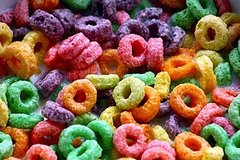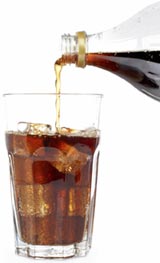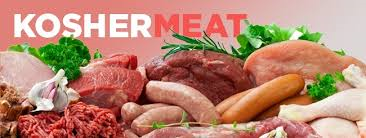|
Food
Not Food?

For I am YHWH who brought you up out of the land of Egypt, to be your Elohim. You shall therefore be holy, for I am holy. This is the torah of the animal, and of the bird, and of every living creature that moves in the waters, and of every creature that creeps on the earth, to make a distinction between the unclean and the clean, and between the living thing that may be eaten and the living thing that may not be eaten.’” Vayikra/Leviticus 11:45-47
Listen FREE this Sabbath - Tsiyon Road Sabbath broadcasting begins June 13, 6 PM, Jerusalem time, and continues for 48 hours. The Midrash is broadcast 8 times over that period. |
|
From
Eliyahu
It's
your mouth and what you put into it is up to you.
Therefore, our discussion of the food torah of
Leviticus 11 in the Midrash this Sabbath is not
intended to judge anyone by their diet, nor is it
intended to force anyone's personal standards on
others. What we want to get at is this: What does
YHWH say is food and what is not food? Many people
have felt that the content of this chapter on food
is so complicated it is beyond the grasp of the
ordinary person to understand. Nothing could be
further from the truth. Go through this study with
us and you will find out how amazingly simple it
really is to understand what meats YHWH says are
food and what meats are not food - and why. This
gives you Divine wisdom on food that you can use to
discern for yourself what is wholesome and good for
yourself and your family - and what isn't. This is
both a spiritual and practical discussion of vital
interest to everyone who eats - so don't miss it.
Blessings and
Shalom!
Eliyahu ben David
www.tsiyon.org
PS - Since our Torah Midrash this week is on food,
I've included below a few articles about food that I
think you will find informative. One of them is
about eating "kosher." Just to be clear, by
including the article I am not suggesting you are
Biblically required to have a rabbi sign off on your
food. The article is included to show the health
benefits of following the Biblical food standard.
________________________________________________________
8 Things We Eat In The
USA That Other Countries Ban
Reprint from:
Bulletin Today, Personal Health
There are
chemicals and additives we allow in our snacks, drinks and packaged
foods that other countries consider so unhealthy, they’ve banned
them.
What are we talking about?
 Here’s
just one example: Fake coloring that gives those eerie bright hues
to boxed mac and cheese, breakfast cereal, candy and soft drinks.
Linked to behavioral changes in children, allergies, migraines and
possibly cancer, those dyes are banned in several countries plus the
United Kingdom — but not in the United States. Here’s
just one example: Fake coloring that gives those eerie bright hues
to boxed mac and cheese, breakfast cereal, candy and soft drinks.
Linked to behavioral changes in children, allergies, migraines and
possibly cancer, those dyes are banned in several countries plus the
United Kingdom — but not in the United States.
In March, two mothers
petitioned Kraft to use safer, natural coloring in their mac and
cheese products, as the company does in other countries where the
dyes are illegal. Kraft said no.
Or how about brominated vegetable oil, or BVO, that’s added to
citrus-flavored soda (like Mountain Dew) and sports drinks to make
the artificial colors stick to the liquid. BVO contains bromine,
which is used as a flame-retardant and has been linked to
neurological problems and interference with thyroid hormones.
BVO has been banned in all European
Union countries, as well as India and Japan, yet it’s in U.S.
products. In January, PepsiCo announced it would no longer use the
additive in Gatorade, after consumers complained, but would leave it
in Mountain Dew.
The full list of foods with questionable chemicals banned elsewhere
comes from a new book by nutritionists Jayson Calton, Ph.D., and
Mira Carlton called Rich Food, Poor Food. It was also reported by
BuzzFeed.com. Here are eight banned foods available in the U.S.
1. Artificially colored food made with dyes derived from
petroleum and coal tar. Yellow 5, Red
40 and six others dyes — used to enhance products from Froot Loops
to Nutri-Grain cereal bars — are called the “rainbow of risk” by the
Center for Science in the Public Interest. They are banned in
Norway, Finland, France, Austria and the U.K.
2. Chicken with arsenic.
Arsenic in chicken feed cuts down on parasites, makes chickens grow
faster and gives their meat more color. It also gives the chicken we
eat higher levels of arsenic, known to cause lung, bladder and skin
cancers, a study last month [10] by the Johns Hopkins Bloomberg
School of Public Health in Baltimore found. Arsenic-laced feed is
banned in the European Union.
3. Drinks with brominated vegetable oil (BVO).
Bromine is a chemical used to keep carpets from catching fire, among
other things, so why is it in our food? PepsiCo is removing it from
Gatorade but keeping it in Mountain Dew. BVO is banned in more than
100 countries.
4. Breads with potassium bromate,
used in bromated flour to make bread products rise higher and
faster. Found in rolls, bagel chips, bread crumbs and flatbreads,
potassium bromate has been linked to thyroid and kidney cancers in
lab animals. It has been banned in Europe, Canada and China.
California declared it a carcinogen [11] in 1991.
5. Frozen dinners with azodicarbonamide.
This is used to bleach and stabilize flour and also to make foamed
plastic products like yoga mats and sneakers. Found in frozen TV
dinners, packaged baked goods and some breads, it has been
associated with inducing asthma. It is banned in Australia, the U.K.
and most European countries.
6. Food preserved with BHA and BHT.
These preservatives are added to cereal, nut mixes, gum, butter,
meat and dehydrated potatoes to keep them from turning rancid. The
debate over their safety has been going on in the U.S. for years.
Meanwhile, they’re banned in the U.K., Japan and many European
countries.
7. Milk with rBGH and rBST, also known as bovine growth
hormones. Synthetic hormones, these
are given to cows and therefore found in milk and other dairy
products (unless the label specifically says otherwise). They have
been linked to cancer and infertility and are banned in Australia,
New Zealand, Canada, Japan and the European Union.
8. Chips with Olestra or Olean,
a fat substitute used in fat-free chips, like Ruffles Wow. Olestra
and Olean can produce cramps and leaky bowels and are banned in the
U.K. and Canada.
________________________________________________________
Since
the late 1980s, HFCS has replaced regular table
sugar, honey, and similar sweeteners. Prolonged consumption of HFCS is the
topic of debate and, like other genetically modified
products, may be bad for your health. A number of
studies conducted over the past few decades indicate
consumption of HFCS is connected with some health
concerns.
sweeteners. Prolonged consumption of HFCS is the
topic of debate and, like other genetically modified
products, may be bad for your health. A number of
studies conducted over the past few decades indicate
consumption of HFCS is connected with some health
concerns.
1.
Significant Risk of Weight Gain and Obesity
A
study conducted by Princeton University, found that
rats that were fed HFCS gained fat 300% more quickly
than those fed an equal (or slightly larger) serving
of fruit-derived sugar.
2.
Increased Risk of Developing Type-2 Diabetes
Consumption of high-fructose corn syrup can lead to
a huge increase in the likelihood of developing
diabetes. This life-long condition can be avoided in
most cases. Excessive amounts of soda, energy drinks
and junk-food aren’t worth losing a foot or going
blind for.
3.
Hypertension and Elevated “Bad” Cholesterol Levels
High-fructose doesn’t just make your body fat, it
also makes your heart fat. There is a strong link
between the irresponsible consumption of high
fructose corn syrup and elevated triglyceride and
LDL (bad cholesterol) levels. Together, these can
cause arterial plaque build-up and lead to heart
problems including hypertension, heart disease, and
even stroke.
4.
High Fructose Corn Syrup and Liver Damage
This
is a big one. Like anything else you eat or drink,
your liver, gallbladder, and kidneys, processes HFCS.
And it’s especially destructive to your liver. When
combined with a sedentary lifestyle, permanent liver
scarring can occur. This greatly diminishes the
organ’s ability to process out toxins and, over
time, can lead to an expansive range of other
negative health concerns. Another study suggests
that HFCS may also cause fatty liver.
5.
Mercury Exposure from HFCS
Did
you know high fructose corn syrup is often loaded
with alarmingly high levels of mercury? One study
found mercury in over 50% of samples tested. Mercury
exposure can result in irreversible brain and
nervous system damage – especially in young, growing
bodies. Way too many foods aimed at children are
LOADED with high fructose corn syrup!
Alternatives to High Fructose Corn Syrup
The
dangers of high fructose corn syrup are both
numerous and severe, if it’s in your diet, remove
it. Some estimate more than one-third of the
American food supply has been polluted by this
trash. I urge you to read product labels and avoid
those with HFCS. Replace HFCS with raw honey for
sweetening needs.
________________________________________________________
Health Benefits of Kosher Food
Reprinted from: Culinary Arts
360 By Penne Cole
Mad cow disease. E.
Coli in products you would never expect, including
peanut butter and spinach. Salmonella in pork and
chicken. Food scares are a dime a dozen these days.
Short of switching to astronaut-style vitamin pills,
what can we do? Studies suggest that keeping kosher
might just do the trick.
Keeping kosher, or going on a diet in accordance
with the Jewish dietary laws, kashrut, is a
religious choice for some while for others, it is a
lifestyle choice. Whatever the reason may be, the
health benefits of kosher food are myriad and
undeniable.
 Kosher
food is prepared according to strict standards, even
stricter than those of the U.S. Department of
Agriculture. Animals with diseases may not be
consumed. Slaughterhouses even conduct postmortems
on the organs of the animals to be sure that they
are disease-free. Similarly, animals with broken
bones or that look unhealthy are not kosher. In
addition, animals raised in the kosher way are
hormone-free. This extra level of safety puts
another barrier between consumers and diseases. Kosher
food is prepared according to strict standards, even
stricter than those of the U.S. Department of
Agriculture. Animals with diseases may not be
consumed. Slaughterhouses even conduct postmortems
on the organs of the animals to be sure that they
are disease-free. Similarly, animals with broken
bones or that look unhealthy are not kosher. In
addition, animals raised in the kosher way are
hormone-free. This extra level of safety puts
another barrier between consumers and diseases.
Eating kosher food also means you are less exposed
to food-related bacteria or diseases. For example,
pork, which is linked to the parasitic disease,
trichinosis, is not allowed in a kosher diet.
Similarly, blood, a known carrier of bacteria, is
drained in the ritual slaughtering that must be
carried out in order for the food to be deemed
kosher.
Kosher slaughtering rituals also leads to healthier
meat. According to kosher law, the slaughtering of
an animal must be immediate and painless. This means
that the animal will feel no fear, and therefore
will not release a hormone linked to fear. Studies
have shown that animals slaughtered in the
conventional way have elevated levels of this
hormone, which leads to a range of health problems
in humans, including cardiac disease, impotence, and
fatigue. As the ritual slaughter rules also dictate
that the animal must be killed in such a way that it
does not know that it will be killed, Kosher food is
also healthier for your conscience.
Kosher food may also be a healthier option for you
if your family has a lot of dietary restrictions or
allergies to contend with. Lactose intolerants can
be sure that kosher food, being meticulously
labeled, does not contain hidden dairy products
while vegetarians can avoid any products that
contain meat.
Keeping kosher is no longer just for the Jewish.
With sales increasing but the Jewish population
staying relatively unchanged, it is clear that more
and more people are turning to kosher foods as a
healthier alternative to conventional food. While
nothing in life is certain, having Kosher’s strict
guidelines standing guard leaves me feeling safer
and healthier in my choice of Kosher food.
________________________________________________________
Need to talk to us? - In the USA and Canada just call us toll
free at (888) 230-2440 for help. Internationally, email us and we
will arrange a phone or Skype call for you.
|
 sweeteners. Prolonged consumption of HFCS is the
topic of debate and, like other genetically modified
products, may be bad for your health. A number of
studies conducted over the past few decades indicate
consumption of HFCS is connected with some health
concerns.
sweeteners. Prolonged consumption of HFCS is the
topic of debate and, like other genetically modified
products, may be bad for your health. A number of
studies conducted over the past few decades indicate
consumption of HFCS is connected with some health
concerns.



 Kosher
food is prepared according to strict standards, even
stricter than those of the U.S. Department of
Agriculture. Animals with diseases may not be
consumed. Slaughterhouses even conduct postmortems
on the organs of the animals to be sure that they
are disease-free. Similarly, animals with broken
bones or that look unhealthy are not kosher. In
addition, animals raised in the kosher way are
hormone-free. This extra level of safety puts
another barrier between consumers and diseases.
Kosher
food is prepared according to strict standards, even
stricter than those of the U.S. Department of
Agriculture. Animals with diseases may not be
consumed. Slaughterhouses even conduct postmortems
on the organs of the animals to be sure that they
are disease-free. Similarly, animals with broken
bones or that look unhealthy are not kosher. In
addition, animals raised in the kosher way are
hormone-free. This extra level of safety puts
another barrier between consumers and diseases.



